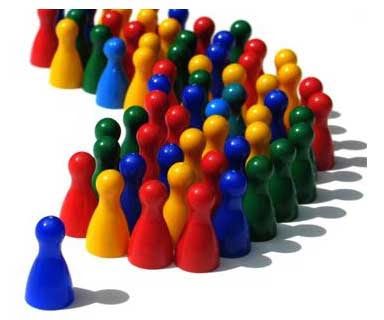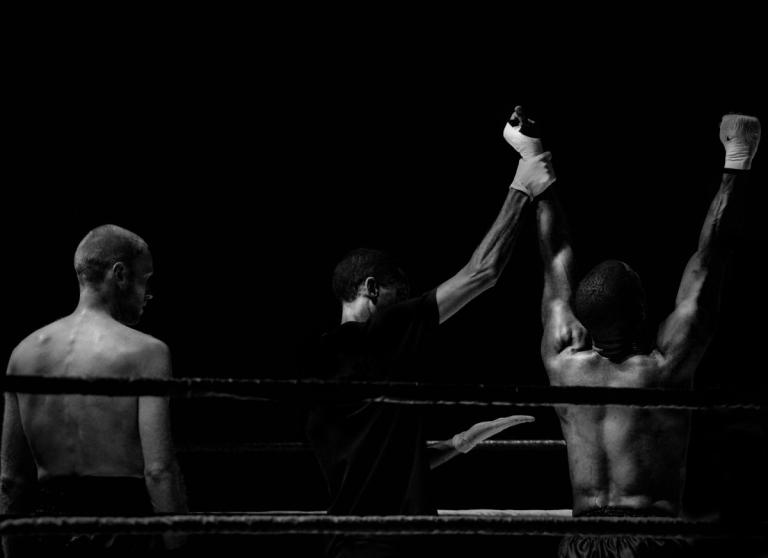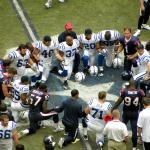
We all play status games. No one is an exception. We intuit the rules of many such games but rarely make a concerted effort to understand how these dynamics work. Consequently, we’re vulnerable to countless factors influencing our relationships and decisions.
So, today, we look at 4 ways people pursue status. Each represents a sphere or criterion by which a person rises or falls in the social ladder. And they’re not all equal in value or function.
But first, let’s revisit the notion of status. What is it? Status is the rank, respect, or reputation one has in a social setting. It’s relative to a person or group’s context. An individual can have different levels of status depending on his or her relationships.
Power: Fear and Force
Gaining and exercising power is one pathway to status. By “power,” I refer to one’s ability to control desired resources. It includes the capacity to compel others’ actions. Status through power depends on using fear, threat, or force.
While status and power are linked, they are not synonymous. In certain situations, a postal worker or TSA agent can have significant power but may lack social respect and esteem. A manager or political figure might yield enormous power but be disrespected or mocked in the eyes of subordinates. Likewise, someone like Mother Teresa had immeasurable status but little to no overt power.
The relationship between status and power is complex and often deceptive. People mistakenly think securing and hoarding power will gain them the status they crave; frequently, however, the effect is quite the opposite. Those lacking power can grow to despise the possessor of power.
Performance: Success or Failure?
Perhaps the most popular strategy for gaining status is being “successful” (however that is defined). Our performance within some sphere dictates where we rank, whether people admire or ignore us.
One function of status (within social groups) is to signal who has a heightened ability to accomplish particular tasks valued by the group. So, we defer to the medical expert who can help us combat illness, or we esteem the athlete who runs faster than the rest of us. In very niche ways, an individual finds worth to the degree that she contributes to some social good.

Nothing is wrong with having status based on performance. At the same time, we need to recognize its limitations. First, status via performance is sphere-specific. Change the situation, the group, or the task, and our perceived status soars or sinks. Second, as we get more performance status we increasingly worry that we’ll lose it. With higher esteem, we become more sensitive to competition and even question whether other people like us for who we are or merely for what we achieve.
Community: Who Do I Know?
Too many Westerners are oblivious to how one’s community affects our social standing. This point is evident in multiple ways.
First, we’re all born and raised into numerous groups, including ethnicity, gender, family, neighborhood, country, schools, etc. We belong to various social organizations, clubs, churches, companies, among other groups. These communities have varying degrees of status within a larger culture. Our social groups provide an inherent boost or barrier to our efforts to gain status.
Second, our communities represent certain values and prescribe any number of corresponding behaviors. Put simply, I’m referring to the group’s culture. Countless unspoken norms are absorbed implicitly and intentionally. Accordingly, the status games played within cultures and organizations have rules that must be obeyed to win and maintain status. Respect and a good reputation demand that we play our role.
Third, we use our social circles or relational networks for the sake of status. We leverage our connections to get access to things we want or influence with others. This is what some Chinese call “borrowing face.” The Western equivalent might be “name-dropping.” For many people, status comes down to “who you know.”
Character: Being Virtuous
In many respects, status can be a finite resource. It is enjoyed but then dissolves like cotton candy, leaving us wanting more. No wonder that the chase for face often leads to adverse, anti-social, and even immoral behaviors.
Enter virtue. Developing character is a fourth way that people acquire status. Whether one has moral virtue is not contingent on winning a social competition. In a 100-person race, only one person wins. Yet, all 100 people could possess an array of virtues. In addition, character speaks more to who we are. Status grounded in genuine moral virtue endures and is less contingent on circumstance.
We can’t ignore an important caveat that should be obvious. All status, including that coming from character, stems from a community or relationships. For example, honesty is broadly valued but the accepted rules for being honest can vary (e.g., white lies, stealing from enemies, etc.). Atheists and other non-Christians are not likely to define virtue as doing everything for the glory of Christ (cf. 1 Cor 10:31).













